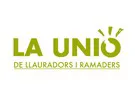According to the transcript of the meetings that the Standing Committee on Vegetables, Animals, Food, and Feed (Plant Health sections) held on October 21 and 22, the European Food Safety Authority (EFSA) recognized that South African citrus exports to the community market should be required to undergo cold treatment, as claimed by La Unió de Llauradors.
In their presentation during the meeting, the EFSA experts stressed that the most effective measure is the cold treatment. In view of this, the European Commission has initiated a process to review the conditions under which South African citrus fruits, and all other plant products that are potential hosts of Thaumatotibia leucotreta, are imported into the EU. It should be noted that cold treatment is the only current system that guarantees the safety of these imports and that Spain - and even South Africa itself - are already obliged to implement it when exporting their products to other countries.
It also emerged that EFSA has had considerable difficulties in accessing all the information that was required from the South African authorities and that, on some occasions, not all of the actions that are included in the South African work plan were followed. In short, the measures established in the work plan are not only ineffective, as they lack a solid scientific basis, but were not always followed.
At the meeting, the representatives of the Ministry of Agriculture reiterated the aspects put on the table in the EFSA report, insisting that cold treatment is the only option to guarantee a tolerable level of pest absence.
In this sense, the European Commission indicated that it is waiting for the International Plant Protection Convention (IPPC) to publish its proposal for a specific phytosanitary standard for the cold treatment against Thaumatotibia leucotreta, to have an international standard reference when modifying community regulations.
More and more South African shipments are intercepted with pests
The latest official data available indicates that, up to September, a total of 204 shipments were intercepted. In the same period of last year, the EU intercepted 203 shipments. In September of this year, the EU intercepted 14 shipments from South Africa with pests (8 with Phyllosticta citricarpa and 6 with Thaumatotibia leucotreta). In the same month of 2020, the EU only intercepted 5 shipments from South Africa. Between January and September, the EU has already intercepted 33 South African shipments. In the same period last year, they intercepted 18 shipments. In September, the EU intercepted a total of 24 shipments from all countries, 14 of which came from South Africa.
For more information:
La Unió de Llauradors
launio@launio.org
www.launio.org
